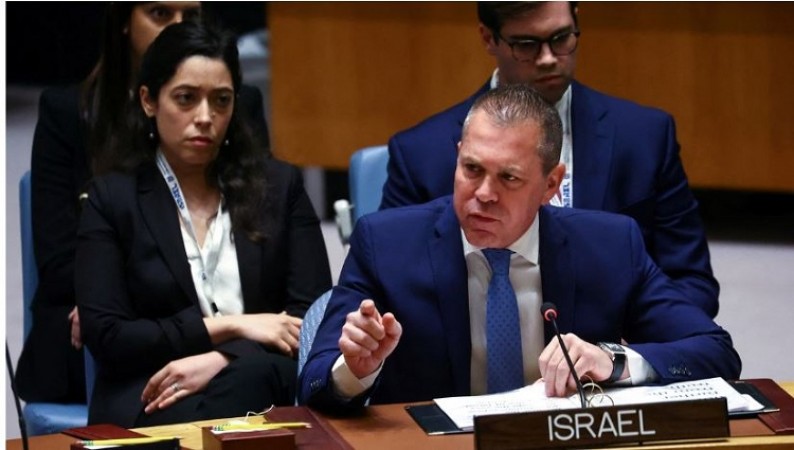
The United Nations Security Council convened in an urgent, closed-door session to address the ongoing conflict between Israel and Gaza, yet failed to reach a consensus on issuing a joint statement. The deepening crisis has seen a tragic toll, with over 1,100 casualties reported since the initiation of hostilities by Hamas, the Palestinian organization in control of the besieged Gaza Strip. Their attack on Israeli communities last Saturday led to the capture of numerous hostages, intensifying an already dire situation.
In response, Israel declared a state of war and launched devastating airstrikes on densely-populated areas of Gaza, resulting in hundreds of casualties. In this context, the United States called upon the 15-member council to strongly condemn Hamas for its actions. Senior US diplomat Robert Wood addressed the media following the session, acknowledging that while several countries had indeed denounced Hamas's attacks, not all had joined in this condemnation. Wood's veiled reference to Russia, which has seen deteriorating relations with the West due to its invasion of Ukraine, hinted at divisions within the council.
The session, which lasted approximately 90 minutes, included a briefing from the UN's Middle East peace envoy, Tor Wennesland. Diplomats revealed that some members, led by Russia, were pushing for a broader agenda than solely condemning Hamas. Any official statement would require consensus among the council's members.
Vassily Nebenzia, Russia's ambassador to the UN, emphasized the need to halt hostilities immediately and called for a ceasefire, urging meaningful negotiations, a recurring plea echoed by the Security Council over the decades. Nebenzia noted that unresolved issues were at the heart of the ongoing crisis.
The United Arab Emirates, which had normalized relations with Israel as part of a significant 2020 agreement, expressed expectations of further Security Council meetings on the situation. UAE Ambassador Lana Zaki Nusseibeh underscored the gravity of the current circumstances, with many council members recognizing the pressing need for a political solution, leading to a two-state resolution, as the most viable path to peace.
Notably absent from the meeting were both Israel and the Palestinian Authority (PA), which governs the West Bank and stands as a political rival to Hamas. These parties were not present due to their current positions within the Security Council. Palestinian Ambassador Riyad Mansour urged diplomats to focus on ending the Israeli occupation, emphasizing the need for a shift in course towards peace and away from the cycle of violence.
Mansour criticized the tendency of some media and politicians to acknowledge the conflict only when Israeli casualties occur, stressing the importance of encouraging Israel to pursue a path to peace that spares the lives of both Palestinians and Israelis.
A World at the Crossroads: Unpacking the Gaza-Israel Crisis
Protest at Aligarh Muslim University in Support of Palestine Amid Israel's Retaliatory Actions